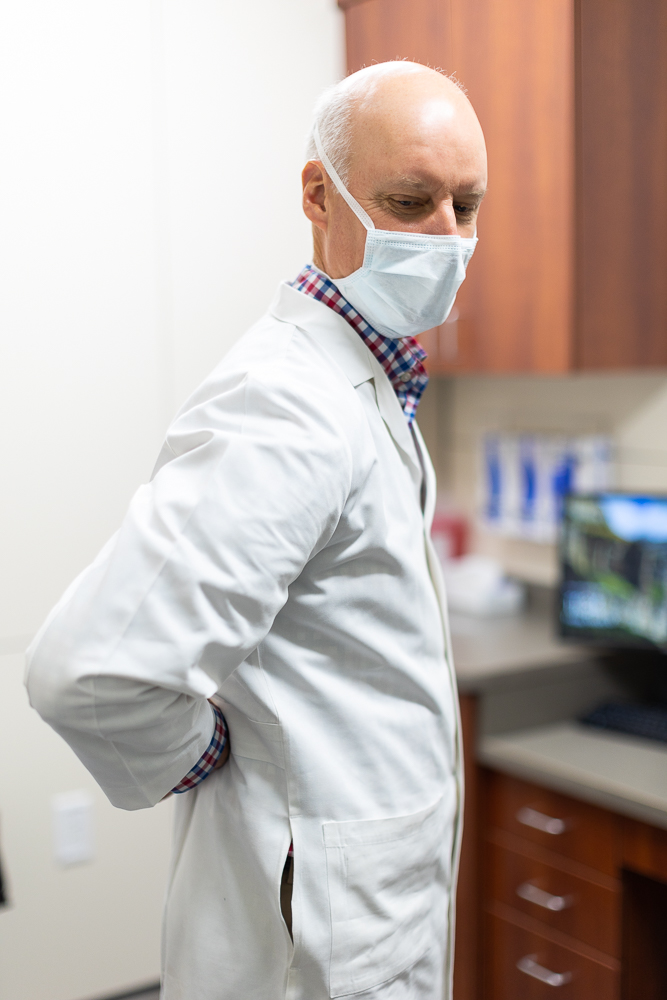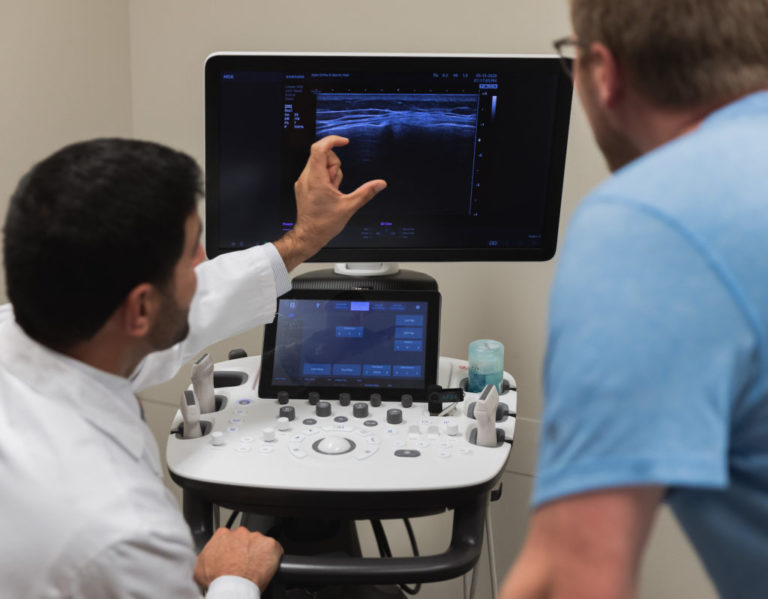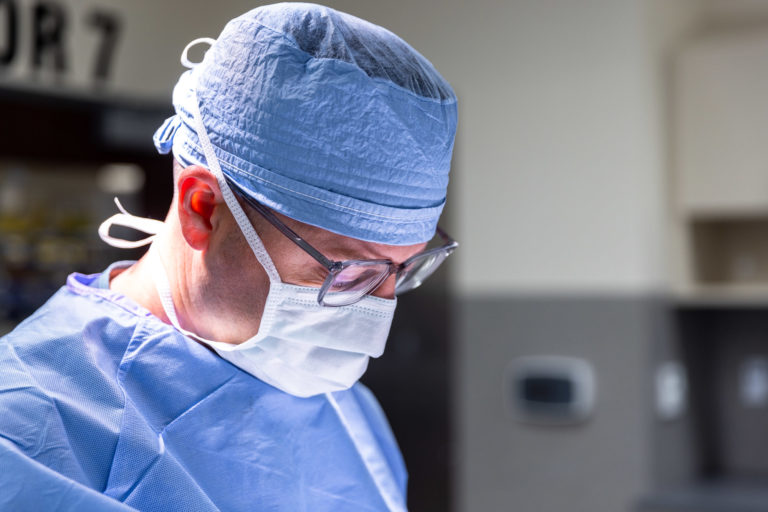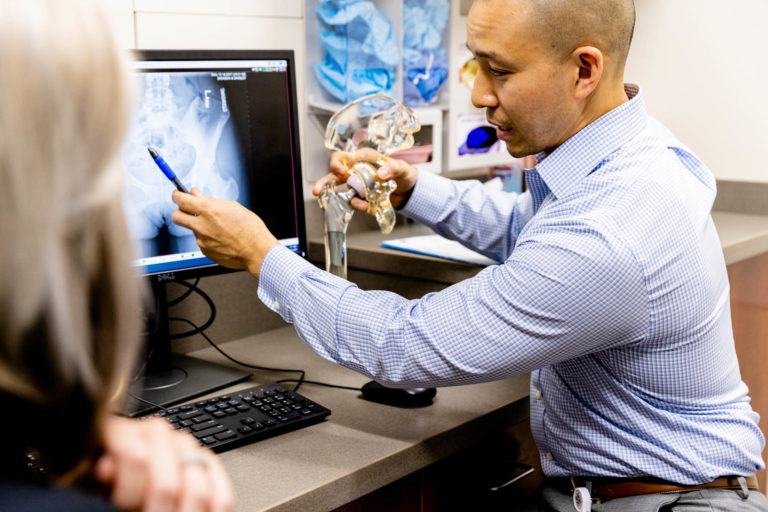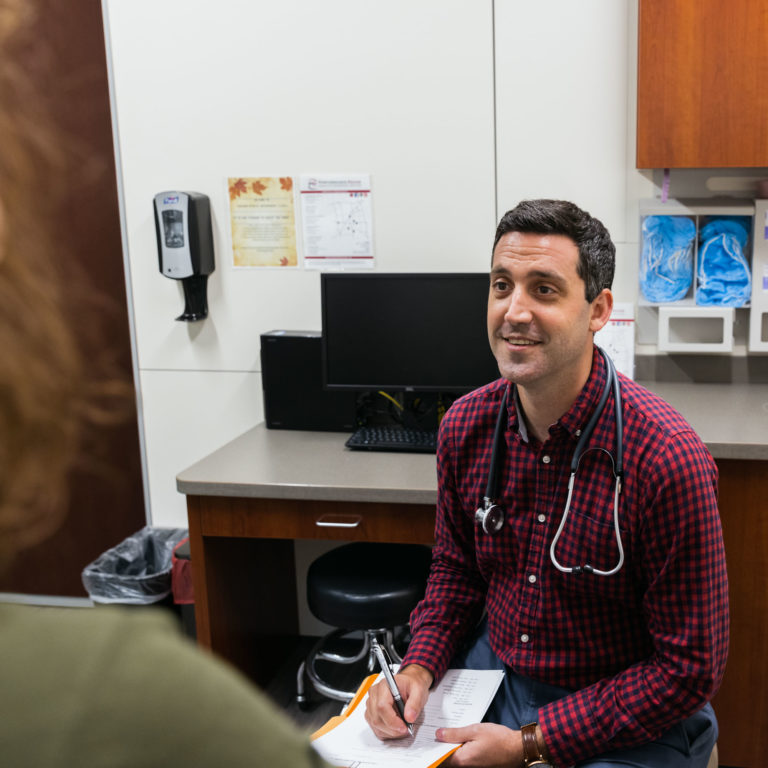Hip Hemiarthroplasty in Kansas City
Hemiarthroplasty
Reliable treatments for pain-free living.
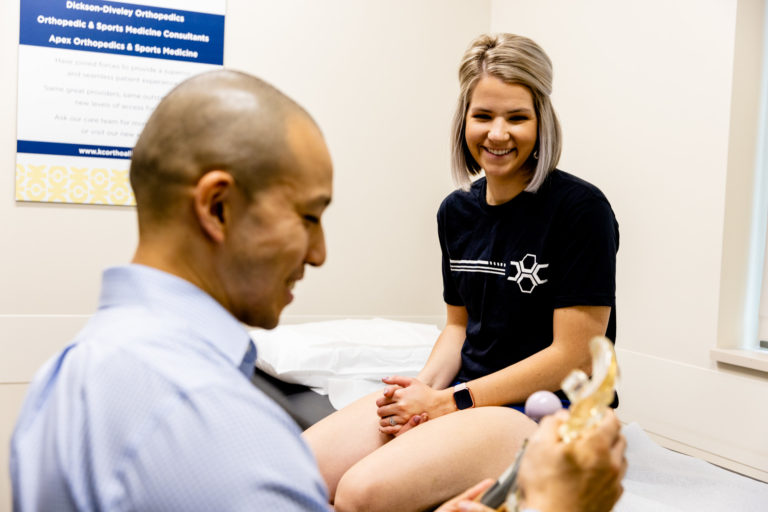
Understanding the Basics Behind Hemiarthroplasty
What is Hemiarthroplasty?
Hip replacement procedures have helped many people return to the activities they love and live a pain free lifestyle.
In some cases, only part of the hip needs to be replaced because of a fracture to the femoral head, the ball part of the hip’s “ball-and-socket” joint.
This procedure is called a hemiarthroplasty. During a hemiarthroplasty, the surgeon removes the femoral ball and replaces it with a prosthetic device. Unlike a total hip replacement, however, the socket part of your hip is left intact.
The highly-trained orthopedic hip physicians at Kansas City Orthopedic Alliance have the expertise required to treat a variety of hip issues, both surgically and non-surgically. When you visit a specialist at KCOA, we focus on creating a treatment plan based on your specific conditions, symptoms, and recovery goals.
Choosing hip hemiarthroplasty in Kansas City is a decision that typically involves guidance from your primary care doctor and orthopedic physician.
When you choose Kansas City Orthopedic Alliance, one of our highly-trained orthopedic hip specialists will conduct an initial evaluation to better understand your condition. After a complete review of your results, your provider will then discuss the best treatment option for your specific hip condition.
Common issues that may require a hemiarthroplasty include:
- Severe pain in your groin or hip
- Severe limp or inability to put weight on affected leg
- Inability to stand up from a fall or walk
- Swelling or bruising in your hip or groin
- Shorter leg on side of injured hip
Hip fractures most commonly occur in people 65 years or older with weakened bones (known as osteopenia or osteoporosis) and usually result from falls.
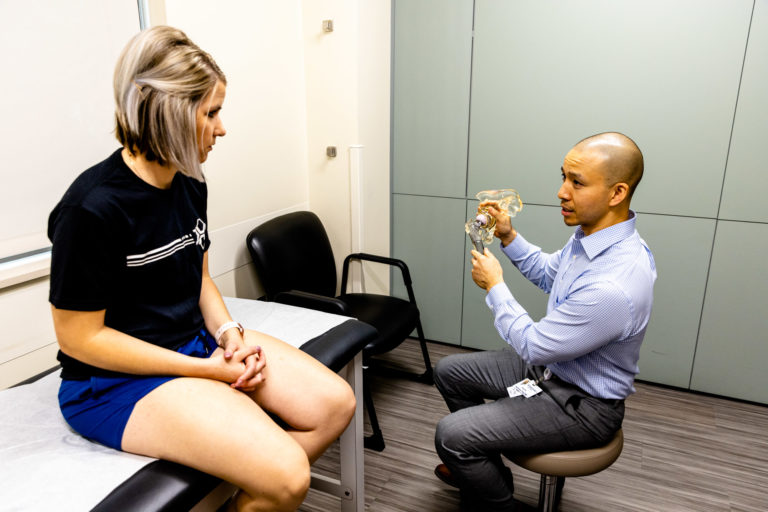
Kansas City Orthopedic Alliance hip Injuries Assessment
Assessing the Injury
Finding the right hip treatment in Kansas City starts with an assessment.
You can think of hip pain as a spectrum, with some instances being more severe than others. The KCOA orthopedic specialists always focus on each individual patient and their concerns before creating a treatment plan.
Therefore, during your initial appointment, we will often ask questions such as:
- Does your pain currently limit you or your activities?
- Has your pain progressed or worsened recently?
- Have you experienced any locking in your hip or an inability to stand or walk normally?
- Have you noticed any change in your symptoms that has made it more challenging to function?
- What are your lifestyle goals?
- How has pain affected those goals?
From there, we can decide which treatment option aligns best with your needs and lifestyle goals. After a proper assessment, we often begin with a physical examination to help determine the origin point of your pain. In some cases, advanced testing may be required for a full diagnosis.
Examination
X-Ray
Also called radiographs, an X-ray captures a picture of the hip. Orthopedic physicians may order an X-ray to rule out the possibility of a fracture (broken bone), osteoarthritis, or other hip-related conditions.
Magnetic Resonance Imaging (MRI)
MRI captures images of muscles, bones, intervertebral discs, and tendons to help provide information other tests can’t detail. During an MRI, you will lie on a table that slides into a tube-shaped scanner. The machine creates a magnetic field around you, using pulsed radio waves to form the MRI images.
Causes
Causes of Hip Pain
There are different types of joints in the body; the hip is a “ball-in-socket” joint. Just as the name suggests, a ball-in-socket joint consists of a ball-like structure that moves inside a depression in the bone to allow for rotational movements. In the hip, the ball-shaped head of your thigh bone (femur) that fits into the hip socket (acetabular socket) creates the joint.
The most common reason patients require a hemiarthroplasty is a fracture in the femoral head or neck. This comes from traumatic injury, such as high impact falls, vehicle accidents, or sports injuries.
Treatment Alternatives
Non-Surgical Options
Kansas City Orthopedic Alliance physicians prefer non-surgical measures in most cases. We usually only suggest surgical options after exhausting multiple less-invasive treatments. Here are a few of the different non-surgical treatments we recommend:
-
Physical Therapy – Seeking out guidance from a trained therapist to help restore function and strength is often a preferred treatment. Therapists are experts in the musculoskeletal system and their ability to assist with manual techniques or exercise instruction can lead to excellent outcomes.
- Injections – Cortisone injections can help with inflammation, and the effects tend to last for 3 to 6 months before you might need another one. Many people manage their pain with injections and exercise.
-
Medications – At times, the pain becomes too much and hinders movement. In those instances, your doctor may recommend over-the-counter NSAIDs (Non-steroidal anti-inflammatory drugs, such as Advil) or prescription medications. Especially with NSAIDs, you should always talk to your doctor to ensure they are the right treatment for you. Side effects can include stomach irritation, ulcers, or even kidney damage. Reasonable dosing and monitoring can help alleviate those side effects.
-
Regenerative Medicines – Regenerative medicines like stem cell injections or platelet-rich plasma can help nourish worn or damaged tissue. This option works best if you have mild-to-moderate hip pain.
F.A.Q.
Frequently Asked Questions
Find expert orthopedic care in Kansas City at KCOA.
Our care is personal. Our team is knowledgeable. And we’re more available than ever.
With access to board-certified specialists across Kansas City, we have the tools to meet almost every musculoskeletal condition.
Our Locations
Overland Park, Kansas
10777 Nall Ave Suite 300 Overland Park, KS 66211Leawood, Kansas
3651 College Blvd. Leawood, KS 66211Kansas City, Missouri
Saint Luke's Medical Plaza #1 4320 Wornall Rd., Ste. 610 Kansas City, MO 64111Belton, Missouri
Belton Regional Campus 17067 S Outer Rd #301 Belton, MO 64012Blue Springs, Missouri
St. Mary’s Medical Center, Main Entrance 203 NW R.D. Mize Road, Suite 200 Blue Springs, MO 64014Shawnee Mission, Kansas
7450 Kessler St ste. 140 Merriam, KS 66204Prairie Star (Lenexa, Kansas)
Prairie Star 23401 Prairie Star PkwyBldg. B, Ste. 220 Lenexa, KS 66227



